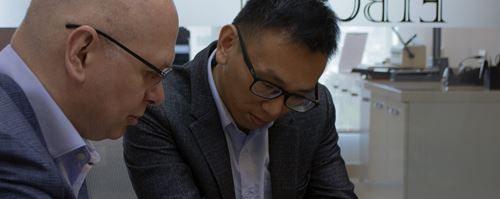Taiwan has traditionally used fossil fuels and nuclear energy to power the needs of its 25 million inhabitants. However, with no natural resources of its own, such as coal, oil, gas or uranium, the country has been forced to rely on imports to keep its plants running.
In recent years, Taiwan has increased its focus on renewable energy sources, in particular offshore wind, with ambitious plans to generate 15GW of wind power by 2035. The country is very well placed to make use of this energy, with wind speeds of 12m/s in the Taiwan Strait plus 16 of the world’s 20 most ideal wind sites (according to 4C Offshore).
To achieve this, Taiwan began looking to Northern Europe for inspiration and experience in developing and operating next generation wind gigaparks. Taiwan subsequently commissioned the 640MW Yunlin Offshore Wind farm, where Fred. Olsen Windcarrier (FOWIC) was chosen by Siemens Gamesa Renewable Energy in 2019 to provide all transportation and installation of its 8MW wind turbines.
In December that year, Fred. Olsen opened its Taiwan office to support the country’s growing offshore wind industry and act as a central hub to service customers across the entire APAC region.
Welcome to the Taiwan office!
Fred. Olsen’s Taiwan office is located in the centre of the Taipei and is being led by Regional Manager Hans Hansen who has been with the company since 2013. With Taiwan’s recent drive to expand its offshore wind capabilities and with growing momentum in other APAC countries, this was the perfect time and place to establish a foothold in the region.
“Taiwan and the Asia Pacific region holds many opportunities for our business,” says Hans Hansen, Regional Manager, Fred. Olsen, “and we believe Taipei is the ideal location from which we can easily reach our clients in very short time. We want to leverage the experience and competence we have in our companies and teams onshore and offshore to bring our industry forward and to build value locally where we operate.”
There are many benefits to having a physical office in Taiwan. Not only does it enable FOWIC to engage directly with clients, giving them confidence in FOWIC’s commitment and capabilities, but the office is only three hours away from other APAC countries that are focusing on wind over traditional energy sources. Japan, for example, has decided not to base its future on nuclear energy and to phase out coal, while Vietnam has recently removed a large coal-fired plant from its 5-year energy strategy plan.
In addition, these APAC countries already have a good supply chain for parts, which can contribute significantly to keeping the time and cost of a new wind farm development under control. Vietnam has, for example, been a well-respected supplier of towers to Europe for many years, while Korea is a leading supplier of foundations. In this regard, Hans has been working hard to establish a solid network of suppliers in the region, which will enable FOWIC to continue to deliver on its high standards by remaining flexible and responsive in line with evolving project demands.
“Companies here research their market thoroughly and the FOWIC brand and reputation are well-known and respected,” says Hans. “Customers new and old will benefit greatly from our global experience; we’ve done it all many times before, which means we know the process and how to overcome the challenges.”
